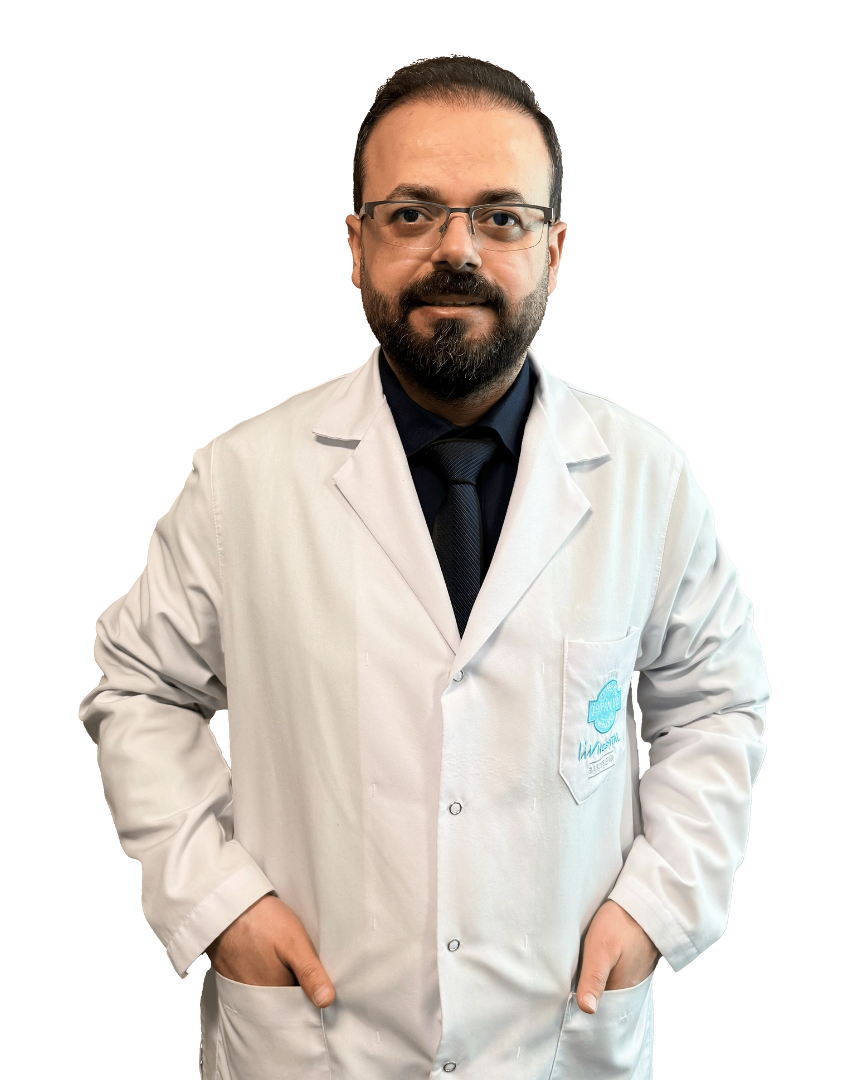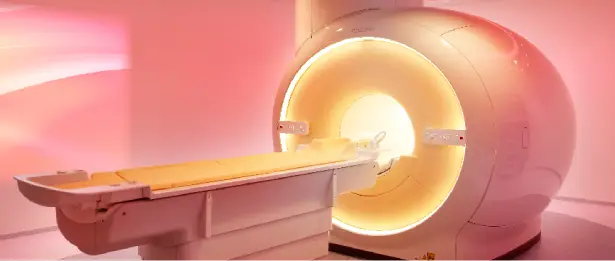Medical Genetics

Last Update Date: 8/23/2024 4:01:55 PM
What is Medical Genetics
Medical genetics is a field of medicine that deals with the diagnosis, understanding, treatment of genetic diseases and the evaluation of genetic risks using genetic science and principles. Medical genetics tries to understand the genetic foundations of diseases by studying the effects of genetic factors on the health of individuals and integrates this information into clinical applications.
Which Diseases Does Medical Genetics Treat
Medical genetics deals with the diagnosis, understanding, treatment of genetic diseases and the evaluation of genetic risks using genetic science and principles. Medical genetics attempts to understand the genetic foundations of genetic diseases by studying the effects of genetic factors on the health of individuals.
Mendelian Diseases:
Cystic Fibrosis: It is an autosomal recessive genetic disorder and is characterized by mucus denser than normal in the lungs, pancreas and other organs. Phenylketonuria (PKU): It is an autosomal recessive genetic disorder and occurs due to a disorder in the metabolism of an amino acid called phenylalanine.
Genetic Cancer Syndromes:
Lynch Syndrome: This is a genetic syndrome that increases the risk of cancer in the colon, uterus, ovaries and other organs.
BRCA Mutations: Mutations in the BRCA1 and BRCA2 genes can increase the risk of breast and ovarian cancer.
Neurodegenerative Diseases: Huntington's Disease: It is an autosomal dominant genetic disorder and is due to the accumulation of an abnormal form of a protein that causes the death of nerve cells.
ALS (Amyotrophic Lateral Sclerosis): It is associated with a genetic factor that causes the death of motor neurons.
Chromosomal Anomalies:
Down Syndrome (Trisomy 21): It is characterized by having three copies of the chromosome 21. Turner Syndrome: It is associated with the absence of one of the sex chromosomes and can usually lead to short stature, infertility and other characteristics.
Metabolic Diseases:
Tay-Sachs Disease: It is an autosomal recessive genetic disorder and is caused by a disorder in the metabolism of lipids in the cells of the nervous system.
Galactosemia: It occurs due to a disorder in the metabolism of a sugar called galactose.
Single Gene Disorders:
Hemophilia: It is a genetic disease that causes a deficiency of blood clotting factors.
Duchenne Muscular Dystrophy: It is due to a genetic mutation on the X chromosome that causes the weakening and degeneration of muscle cells.
The Genetic Foundation of Complex Diseases:
Diabetes Mellitus (Type 2): It is a complex disease caused by the interaction of genetic and environmental factors.
Heart Diseases: It can occur due to the interaction of multiple genetic and environmental factors.
Liv Hospital Medical Genetics
Quality and reliable polyclinic and laboratory services are provided for the diagnosis, follow-up and treatment of all kinds of hereditary diseases from the pre-pregnancy period with modern up-to-date devices at the Medical Genetics Outpatient Clinic.
The Main Services Provided in Our Genetic Outpatient Clinic
- Newborn babies with suspected genetic diseases (SMA, cystic fibrosis, biotidinase deficiency, phenylketonuria etc.)
- Muscular dystrophies of genetic origin (cardiomyopathy, Duchenne-Becker, e.t.c.)
- Neurological diseases of genetic origin (SMA, Fragile X, SCA, Huntington's, Alzheimer's, Parkinson's, ataxia etc.)
- Hematological diseases of genetic origin (Thalassemia, hemophilia, polycythemia vera etc.)
- Diseases leading to cognitive deficit and delayed growth-development
- Diseases that lead to short stature and skeletal anomalies
- Disorders of sex development
- Chromosomal disorders (Down syndrome, Turner syndrome, Klinefelter syndrome)
- Determination of the carriage of spouses who are in a consanguineous marriage and those who are pre-pregnant or in the process of pregnancy
- Risky Pregnancies (risk in NIPT test, advanced maternal age, fetal ultrasound anomaly, pregnant women with risk in screening test)
- Repeated pregnancy losses (2 or more miscarriages)
- Exposure to teratogens such as chemicals, drugs, alcohol during pregnancy Inability to have children (infertility) or IVF failure
- Pre-implantation genetic diagnosis-screening (PGD, PGS) consultation, which requires embryo analysis in in vitro fertilization
- A history of breast, ovarian or uterine cancer in herself or multiple individuals in the family history
- A history of cancer that developed before the age of 40
- Targeted genetic testing (smart drug)
- Those who want to get information before and after genetic testing
The Main Services Provided at the Genetic Diseases Evaluation Clinic
All cytogenetic and molecular genetic testing services are performed in accordance with the indication in all branches, especially pediatric diseases, obstetrics and gynecology, neurology, hematology, and oncology in our Genetic Diseases Evaluation Outpatient Clinic. All genes in humans (about 20,000 genes) are genetically analyzed to investigate about 7000 single gene diseases and all all chromosomal diseases.
A) Cytogenetic Tests
Chromosome analysis (from blood, CVS, amniocentesis, cordocentesis, miscarriage material) FISH analyses (children with an anomaly, hematology tests, targeted oncological tests, rapid detection of chromosomal diseases during pregnancy Molecular karyotyping (Array CGH)
B) Next Generation Sequencing (NGS) Gene Panels, Whole Exome Sequencing (WES) Analyses and Whole Genome Sequencing (WGS) Analyses
These tests, detailed clinical and laboratory evaluations can be performed to determine the diagnosis and treatment of genetic diseases in our outpatient clinic. Examples of NGS panels; Hereditary cancer Panel (Breast, Ovarian, bowel, stomach etc.) Neurological diseases panel (Epilepsy, SMA, neuropathies, muscle Diseases etc.) Cardiovascular diseases panel (cardiomyopathy, arrhythmias, vascular, connective tissue Diseases...) Endocrine Disorders panel (Diabetes-Obesity, congenital adrenal hyperplasia, thyroid...) Hematological diseases panel (Bone Marrow Failure, Coagulation Deficiencies, Thrombosis...) Metabolic Disorders panel (Glycogen Storage Disorders, Lysosomal Storage Disorders...)
C) Preimplantation Genetic Diagnosis and Screening (PGD-PGS)
At our outpatient clinic, embryo selection process PGD (Preimplantation Genetic Diagnosis) is performed for single gene diseases (for all single gene diseases with known mutations such as thalassemia, cystic fibrosis and diseases requiring HLA tissue compatibility). At our outpatient clinic, embryo selection PGS (Preimplantation Genetic Screening) procedures are performed at the in vitro fertilization stage for diseases caused by chromosomal disorders such as Down Syndrome.
D) FETAL DNA, NIPT (Non-Invasive Prenatal Tests)
At our outpatient clinic, numerical and some structural anomalies of all chromosomes of the fetus can be scanned from the maternal blood with New Generation Sequencing (NGS) technology. In general, it can be performed at 10-11 weeks of pregnancy and onwards and the results are obtained in 10-15 days.
E) Targeted (Smart Drug) Cancer and Immunotherapy Tests
Targeted cancer therapies are medications designed to interfere with specific molecules required for tumor growth and progression. Genetic testing for cancer treatment detects mutations and thus identifies tumors that may be susceptible or resistant to targeted therapy.
F) Carrier Genetic Test (CGT)
Carrier genetic tests are testing that will reveal whether a couple is at risk of having a ill child. Almost every person is a carrier of one or more mutations in various genes. For example, it is known that 1 in 25 people in our society is a carrier of the CFTR gene mutation that causes cystic fibrosis, 1 in 50 is a carrier of the HBB gene mutation that causes beta Thalassemia, and 1 in 50 people is a carrier of the SMN1 gene mutation that causes SMA. There are hundreds of recessive inherited diseases such as these diseases. With this test, carrier detection can be done and a healthy child can be born by embryo selection.


